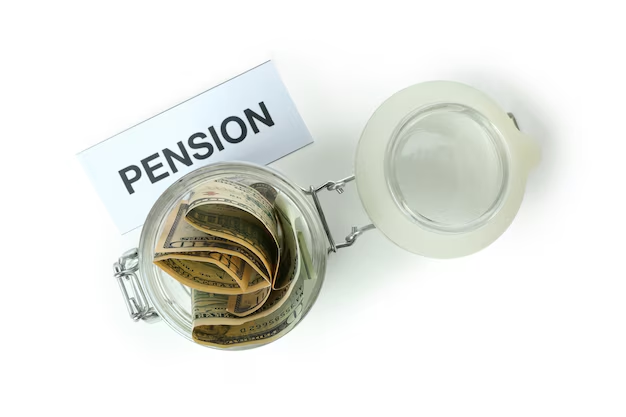Your Guide to How Long Is Pension Paid After Death
What You Get:
Free Guide
Free, helpful information about Pension FAQ and related How Long Is Pension Paid After Death topics.
Helpful Information
Get clear and easy-to-understand details about How Long Is Pension Paid After Death topics and resources.
Personalized Offers
Answer a few optional questions to receive offers or information related to Pension FAQ. The survey is optional and not required to access your free guide.
Understanding Pension Payments After Death: What You Need to Know
The death of a loved one is a challenging time, compounded by financial considerations such as pensions. Understanding how long a pension can continue to be paid after the pensioner passes away is crucial for planning and financial stability. This article delves into this topic, offering clarity on the duration of pension payments post-death and exploring related elements that depend on various factors.
Basics of Pension Continuation After Death
How Pension Types Affect Payment Continuation
Defined Benefit Pensions: Often known as traditional pensions, defined benefit plans promise a specific payout upon retirement. If the pensioner passes away, these plans may offer two key options:
- Spousal Benefits: Many defined benefit pensions include provisions for a surviving spouse to continue receiving a percentage of the pensioner's benefit, depending on the plan.
- Lump Sum Payment: Some plans provide an option for a one-time payment to beneficiaries after a pensioner's death.
Defined Contribution Plans: These include 401(k)s and IRAs. Upon death, the account balance typically transfers to named beneficiaries. Payment duration is flexible, often determined by the beneficiary's preferences, such as taking a lump sum or receiving periodic distributions.
Government and State Pensions
Social Security Benefits: In the U.S., Social Security provides ongoing benefits to surviving spouses, minor children, and sometimes dependent parents. The benefits generally continue as long as the recipients meet eligibility criteria, which vary depending on age, marital status, and other factors.
State and Public Sector Pensions: These can vary significantly by state and employer. Some may offer survivor benefits similar to defined benefit plans, while others limit payments after the pensioner's death.
Factors Influencing Pension Duration After Death
Survivor Elections: When initiating a pension, choosing a survivor benefit option ensures ongoing payments to a spouse or dependent.
Plan Rules: Each pension plan has specific guidelines determining the continuation of payments, often outlined during initial enrollment.
Beneficiary Designations: Accurate and up-to-date beneficiary forms are crucial, as they dictate who will receive benefits and for how long.
Legal Regulations: Government mandates sometimes influence pension continuation, requiring plans to offer certain survivor benefits for specific situations.
Tax Implications: Tax rules might affect how benefits are paid out and whether continued payments are advisable compared to a lump sum.
Navigating Survivor Benefits
Understanding Spousal Benefits
Many pensions provide options for a reduced monthly payment during the pensioner's lifetime in exchange for continued payments to a surviving spouse. Familiar terms include:
- Joint and Survivor Annuity: Continues to pay the beneficiary benefits after the pensioner's death, typically at a reduced rate.
- Period Certain and Life Annuity: Guarantees payments for a specific period, even if the pensioner passes away early, ensuring support for beneficiaries.
Child and Dependent Benefits
Children or other dependents might receive benefits upon a pensioner's death, notably if they are minors or depend financially on the deceased. The duration and amount can vary based on the plan and local laws.
Practical Considerations and Steps
Reviewing Pension Documents
Regularly reviewing pension documents helps ensure beneficiaries are correctly designated. Circumstances such as marriage, divorce, or childbirth necessitate updates to keep information current.
Communicating With Plan Administrators
Effective communication with pension plan administrators or HR departments is essential for understanding specific policies and options available. They can provide guidance and documentation that informs decisions post-mortem.
Professional Financial Guidance
Consulting with a financial advisor can be beneficial in understanding pension implications, tax consequences, and broader financial planning related to pensions and inheritance.
Summary: Key Takeaways for Pension Payments After Death 💡
- Plan Type Matters: Different plan types affect how benefits are paid after death—explore options thoroughly.
- Beneficiary Designation: Ensure correct and updated beneficiary designations to facilitate smooth transitions.
- Survivor Elections: Consider the impact of electing survivor benefits on overall pension amounts and legacies.
- Legal and Tax Guidance: Seek professional advice for legal and tax implications impacting decisions.
- Regular Reviews: Review and update pension plans and documents consistently to reflect life changes.
Understanding the nuances of how pensions continue post-death allows you to make informed decisions that support long-term financial security for loved ones. Accurate, proactive planning ensures peace of mind and a stable financial future even after the pensioner's demise.
What You Get:
Free Pension FAQ Guide
Free, helpful information about How Long Is Pension Paid After Death and related resources.

Helpful Information
Get clear, easy-to-understand details about How Long Is Pension Paid After Death topics.

Optional Personalized Offers
Answer a few optional questions to see offers or information related to Pension FAQ. Participation is not required to get your free guide.


Discover More
- a Banff Boutique Inn Pension Tannenhof
- Am I Entitled To My Husband's Pension If We Separate
- Are Federal Pensions Taxed
- Are Military Pensions Taxable
- Are Pension Benefits Taxable
- Are Pension Benefits Taxable In Pa
- Are Pension Benefits Taxable Income
- Are Pension Contributions Tax Deductible
- Are Pension Payments Taxable
- Are Pension Payments Taxed
